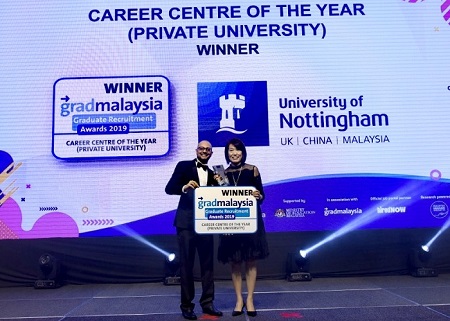February 21, 2022, by Communications
Swapping The Rat Race for Social Change, MBA-Qualified NGO Leaders Upskill and Reskill Malaysian Youth
This year’s International Day of Education, celebrated on 24 January, is themed, “Changing Course, Transforming Education”. It appropriately shines a light on the importance of changing the way we learn and teach, essentially promoting an affinity for lifelong learning. S T Rubaneswaran, founder and CEO of accelerator platform, BEYOND4 and Natalie Tan, Head of Transformational Enterprises at Dignity for Children, are testaments to the power of lifelong learning to nurture digitally innovative talent in Malaysia and breaking the poverty cycle among the urban poor respectively.
Armed with a Master of Business Administration (MBA) degree, Rubaneswaran and Natalie are challenging the popular perception about the postgraduate qualification, being an inspiration to others to pursue opportunities to pay it forward, as transformational leaders themselves along the ‘road less travelled’.
“An MBA gave me the skills I needed to set up my own Talent Accelerator Ecosystem, BEYOND4. The entrepreneurship skills I picked up is what I now use to help support other young aspiring entrepreneurs,” explained Rubaneswaran. His initiative, BEYOND4, collaborates with government-linked bodies like TalentCorp, MDEC, and many others to support youths in their respective career aspirations. Over the past 18 months, BEYOND4 has collaborated with many companies across eight industry verticals to create thousands of employment opportunities.
For Natalie, the MBA is not just for people in the corporate workplace, but for individuals serving in management and leadership positions in non-government or non-profit organisations or even individuals starting up their own companies. “My MBA has given me a thorough and broad understanding of how businesses function and innovate, the core principles of which transfer through to my capacity and role as Dignity for Children’s Transformational Enterprises Head. Our organisation empowers underprivileged youth to gain exposure by working in business settings while picking up basic vocational and entrepreneurship skills. These include woodworking, sewing, hospitality, childcare, and graphic design,” she said. Since 2015, Dignity for Children has trained over 400 young adults and provided internship placements across the Klang Valley.
This emphasises the importance of transformational educational experiences in Malaysia and the role postgraduate programmes offer in this area. Decision making and leadership in organisations today demands holistic knowledge and skills along with complementary soft skills, emotional intelligence (EQ), and resilience, for the ability to manage, lead and pivot in highly dynamic and varied work environments.
A Master of Business Administration (MBA) is one great example of this. An MBA programme provides a broad understanding of how businesses function, strategise and innovate, covering functional subjects like finance and accounting, strategy, human resources (HR), people development, innovation, and marketing whilst developing a holistic perspective of the organisation and its stakeholders. These are areas of expertise universally required in organisations across all industries.
Since graduating from the MBA programme myself, I (Alicia) now act as the Head of Careers Advisory Service (CAS) at the University of Nottingham Malaysia, to help students engage with different companies across various industries. Gaining a foothold in different organisations and carving out your purpose within them is very important in today’s workplace. Rubaneswaran and Natalie are shining examples of a new breed of MBA-qualified changemakers who are contributing to the higher purpose of developing and nurturing the youth and underprivileged communities. They help young Malaysians excel in jobs of the future, by training them to be productive and independent.
In honour of International Day of Education, we take this opportunity to salute educators, be it formal or informal, involved with the enrichment of our children. It is heartening to see non-traditional educators among social enterprises and NGOs stepping in to complement the education experience through vocational upskilling and reskilling.
-
Post a comment


